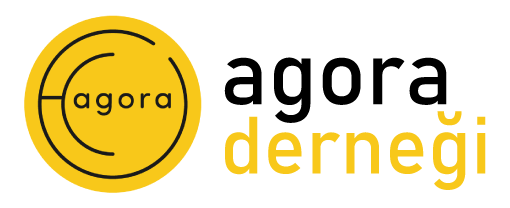Haymatlos Music Collective was founded in 2015 in Izmir by Asim Murat Okur, Gürkan Arslanbuğa and Kemal Onur Tuzlacı. We started to research the music culture of all ethnicities living and have lived in Anatolia. During our research we met new musicians. We reproduced and rearranged some old songs of different cultures in different languages. Now the collective reached a number of 15 musicians. There are 4 different sub-groups in the collective whose cultural research areas are different but have the same ethic codes.
Our aim in 2019 is to create a free space for all musicians in our collective to promote their self-expression, creativity, social cohesion, and artistic development. Through workshops we would like to build our collective members’ capacity in using music technologies and make them able to write, record, edit their music in a free space. After our workshops we aim to share our knowledge and free space with other musicians by using music’s generative role in shaping new collectivities. Haymatlos is a Izmir-based music collective working with musicians from different background and musical understandings. It was built in 2015 and it is essentially a way for its members to inspire each other.
Haymatlos collective provides gear and spaces where its members can practice their skills, share experiences and learn from each other. It is currently working with fifteen musicians and aims to create free space for musicians. It promotes self-expression, creativity, social cohesion, and artistic development through a number of workshops.
To encourage the musical production of musicians and to develop experience-sharing channels we are planning to organize workshops and aiming to create free space and multicultural environment for musicians. Musical production for a long period of time have been a bridge for the connection of different cultures, traditions and ethos, which have created an opportunity for mutual respect and understanding.
Culture is who we are, and what shapes our identity. Placing culture at the heart of development policies is the only way to ensure a human-centred, inclusive and equitable development. The UNESCO Declaration on Cultural Diversity affirmed that culture should be regarded as: “the set of distinctive spiritual, material, intellectual and emotional features of society or a social group, and that it encompasses, in addition to art and literature, lifestyles, ways of living together, value systems, traditions and beliefs.”
The right to participate in cultural life has both individual and collective elements; they may be exercised as an individual, in association with others, and within a community or group. States should pay particular attention to the cultural rights of minority and indigenous groups, among others, and provide opportunities for them to both preserve their culture and shape cultural and social development, including in connection to language and land and natural resources.
Because culture affects all aspects of human life, cultural rights illustrate the indivisibility and interdependence of all rights in a more comprehensive fashion than do any other rights. Indeed, it is difficult-perhaps even impossible-to examine cultural rights in isolation; cultural rights are often an inextricable part of other rights.
According to Universal Declaration of Human Rights article 27
- Everyone has the right freely to participate in the cultural life of the community, to enjoy the arts and to share in scientific advancement and its benefits.
- Everyone has the right to the protection of the moral and material interests resulting from any scientific, literary or artistic production of which he is the author.
The protection and promotion of culture is a human rights imperative. The right to take part in cultural life guarantees the right of everyone to access, participate in and enjoy culture, cultural heritage and cultural expressions.
The Convention for the Safeguarding of the Intangible Cultural Heritage (2003) and the Convention on the Protection and the Promotion of the Diversity of Cultural Expressions (2005) are important milestones that demonstrate cultural rights are inseparable from human rights.
A human-centred approach to development based on mutual respect and open dialogue among cultures is key to safeguarding heritage, strengthening creative industries, and encouraging cultural pluralism. The full realization of this right depends on concrete steps for the conservation, development, and diffusion of culture.
The UNESCO Thematic Indicators for Culture in the 2030 Agenda – Culture|2030 Indicators provide a framework to measure and monitor the progress of culture’s enabling contribution to the national and local implementation of the SDGs.
Based on these international human rights framework Haymatlos Music Collective aim to work with
-vulnerable communities to protect and promote their own history and their right to the city,
-artists to overcome exclusion in access to resources, to network, and to the city as a whole,
and design alternatives which protect cultural rights in the face of discrimination and exclusion.
[:]